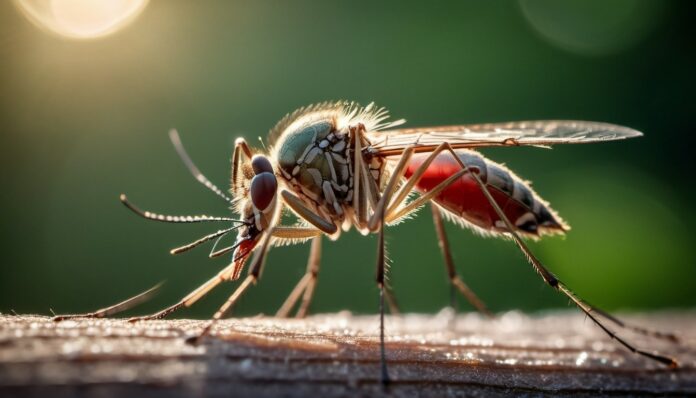Mosquitoes are small, flying insects that are often seen as a mere nuisance. However, these tiny creatures are far more dangerous than they appear. They are known for their ability to spread deadly diseases, making them one of the most dangerous creatures on Earth. Let’s explore why mosquitoes are called the tiny killers.
Disease Carriers
One of the most well-known diseases spread by mosquitoes is malaria. This disease affects millions of people each year, particularly in tropical and subtropical regions. The Anopheles mosquito is the primary carrier of the malaria parasite.
Dengue Fever and Zika Virus
Mosquitoes also spread other deadly diseases like dengue fever and the Zika virus. The Aedes mosquito is responsible for transmitting these viruses, causing severe illness and sometimes death.
Millions Affected
Mosquito-borne diseases affect millions of people worldwide. Malaria alone causes over 400,000 deaths each year, most of them children under five years old.
Economic Burden
The impact of mosquito-borne diseases extends beyond health. These diseases place a significant economic burden on affected countries, costing billions of dollars in healthcare and lost productivity.
Lifecycle and Habitat
Mosquitoes lay their eggs in standing water. This can include anything from puddles and ponds to water-filled containers left outdoors. Once hatched, larvae develop in the water before emerging as adult mosquitoes.
Global Presence
Mosquitoes are found almost everywhere in the world, except for places with extreme cold like Antarctica. Their ability to adapt to various environments makes them widespread and difficult to control.
Prevention and Control
One of the most effective ways to control mosquito populations is to eliminate their breeding grounds. This means removing standing water from around homes and communities.
Use of Insect Repellents
Using insect repellents and mosquito nets can help protect individuals from mosquito bites. These measures are especially important in areas where mosquito-borne diseases are common.
Developing Vaccines
Scientists are working tirelessly to develop vaccines for mosquito-borne diseases. Recent advancements have led to vaccines for diseases like dengue fever, with ongoing research for malaria and Zika virus vaccines.
Genetic Control Methods
Innovative methods, such as releasing genetically modified mosquitoes, are being explored to reduce mosquito populations. These mosquitoes are engineered to produce offspring that do not survive, helping to control the spread of diseases.
Mosquitoes may be small, but their impact on human health is enormous. By spreading deadly diseases, they earn their title as the tiny killers. Understanding their behavior and taking preventive measures can help reduce the risk they pose. With ongoing research and innovative solutions, there is hope for a future where mosquito-borne diseases are no longer a major threat to humanity.
